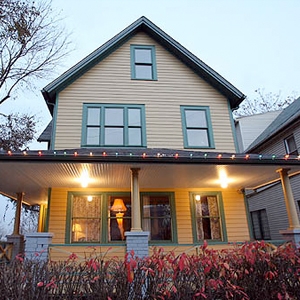First Time Home Buyer with Student Debt
Do you fantasize about owning a house with a pretty white picket fence outside and a big backyard? If you do and you’re a millennial, you might worry that your dream might never come true. After all, many millennials struggle with overwhelming amounts of student debt and over half of millennials are putting off life milestones like homeownership in order to focus on their student loan repayment.
That’s not surprising since those with student debt graduate with $28,000 on average. Your student debt might make it more difficult for you to afford to buy a home and to qualify for mortgage – but it doesn’t make it impossible. In fact, here are some easy things you can do to boost your chances of buying a house with student loan debt:
Tip 1: Keep Your Credit Score High and Your Debt-to-Income Ratio Low
To qualify for a mortgage, it’s critical to keep your credit score high. If your credit score isn’t ideal, there are a couple quick ways you can improve it. The first thing you should do is ensure that you’re using no more than 20% to 30% of your available credit on things like lines of credit or credit cards. To achieve this ideal ratio, you can either pay down existing debt or ask for a credit increase.
Another way to boost your credit score is to have someone add you as an authorized user on their credit card that they’ve had for a long time and responsibly paid. By adding you as an authorized user, their credit history related to that account will appear on your credit history and that could boost your score.
The next thing you need to do is ensure that your debt-to-income ratio is low enough to qualify for a mortgage. Your debt-to-income ratio is the amount you are paying towards debt every month compared to your income. For example, if you were making $6,000 and paying $3,000 in debt payments each month, your debt-to-income ratio would be 50%.
When it comes to borrowing money a mortgage, lenders prefer your debt-to-income ratio, including your future mortgage payments, to be under 36%, but Federal Housing Authority backed loans will allow a debt-to-income ratio of as much as 41%.
If your debt-to-income ratio is too high, one way to lower it is to pay off or refinance debt to reduce how much you’re paying monthly. Another way is to make more money. You might do this by asking for a raise, taking a new job with a higher income, or working a second job. You might also decide to save up a larger down payment in order to reduce the amount of money you need to borrow.
Tip 2: Get Pre-Approved
If you have student loans, its especially important to apply for a mortgage pre-approval because it ensures you understand how much you can afford before you fall in love with a house above your price range.
When it comes to pre-approval, a lender will want to look at your detailed financial history to understand where your income is coming from, what asset to our own., your credit history, and your credit score. Be sure to contact your lender to find out what information they’ll need before the meeting, but expect to be asked to bring things like your tax returns for the last few years, bank statements, paystubs, W-2s and information verifying your income if you’re self-employed.
Tip 3: Refinance Your Student Loans
Your student loans can impact your ability to qualify for a mortgage since buying a house with student loan debt can affect your debt-to-income ratio. By shifting your federal student loans to income-driven repayment options you could greatly reduce your payments. By consolidating your private student loans to get a lower interest rate or a longer term length, you could also greatly reduce your monthly debt payments and make a real impact on your debt-to-income ratio.
Tip 4: Consider Down Payment Assistance Programs
Across the U.S., there are hundreds of down payment assistance programs at both local, state, and federal levels that help homebuyers with down payments. Many provide grants or low-interest or no-interest loans to first-time homebuyers are those who haven’t owned a home in several years. The most commonly used are Federal Housing Administration down payment options, and those offered by the Department of Housing and Urban Development, the USDA, and Veteran Affairs.
The Bottom Line
These tips are vital when it comes to buying a house with student loan debt. Qualifying for a mortgage when you have student loans can be difficult, but it’s entirely possible and much easier than many people think. With a few changes and tweaks, you can fulfill your homeownership dreams and start putting up that picket fence.









